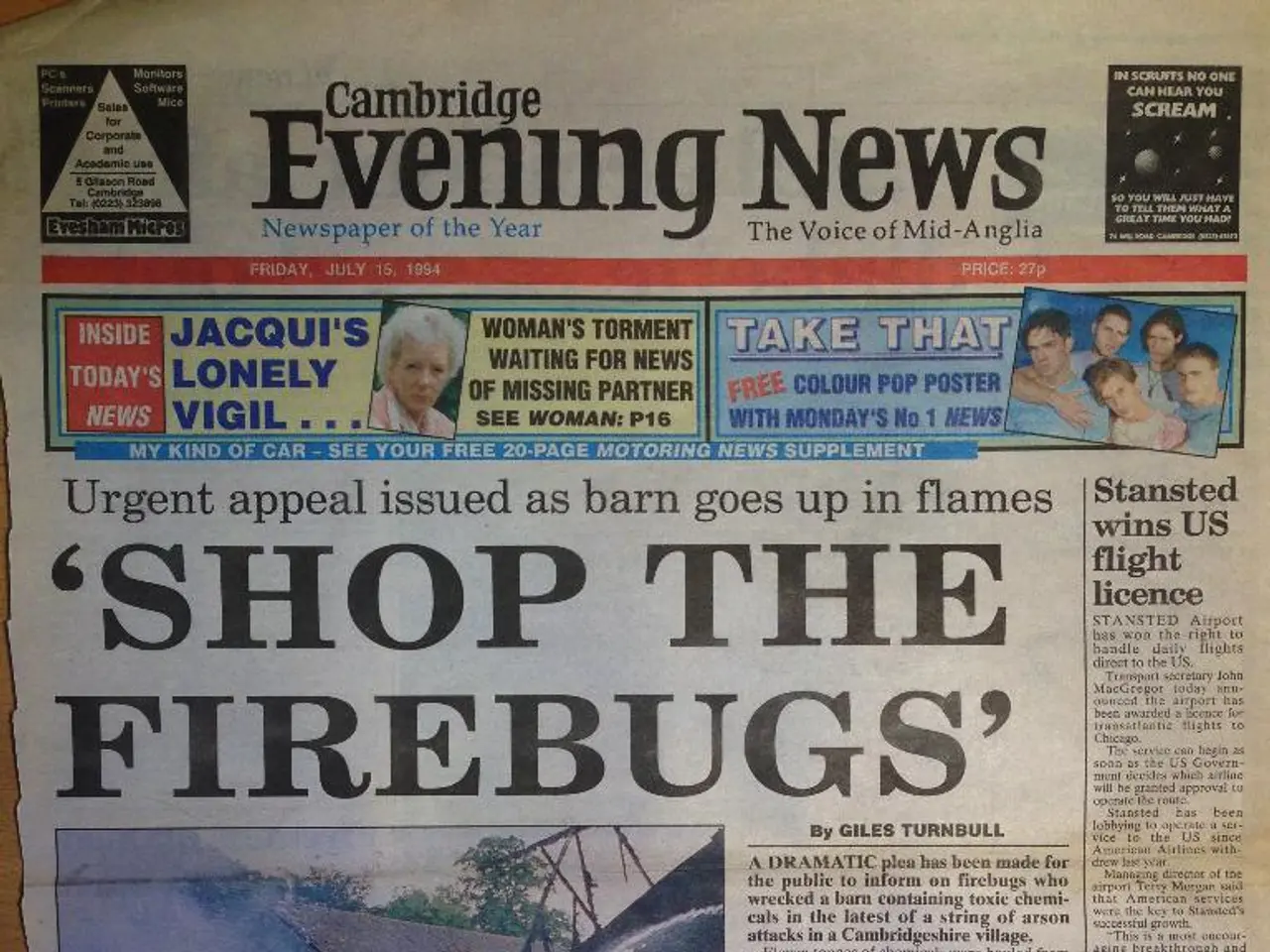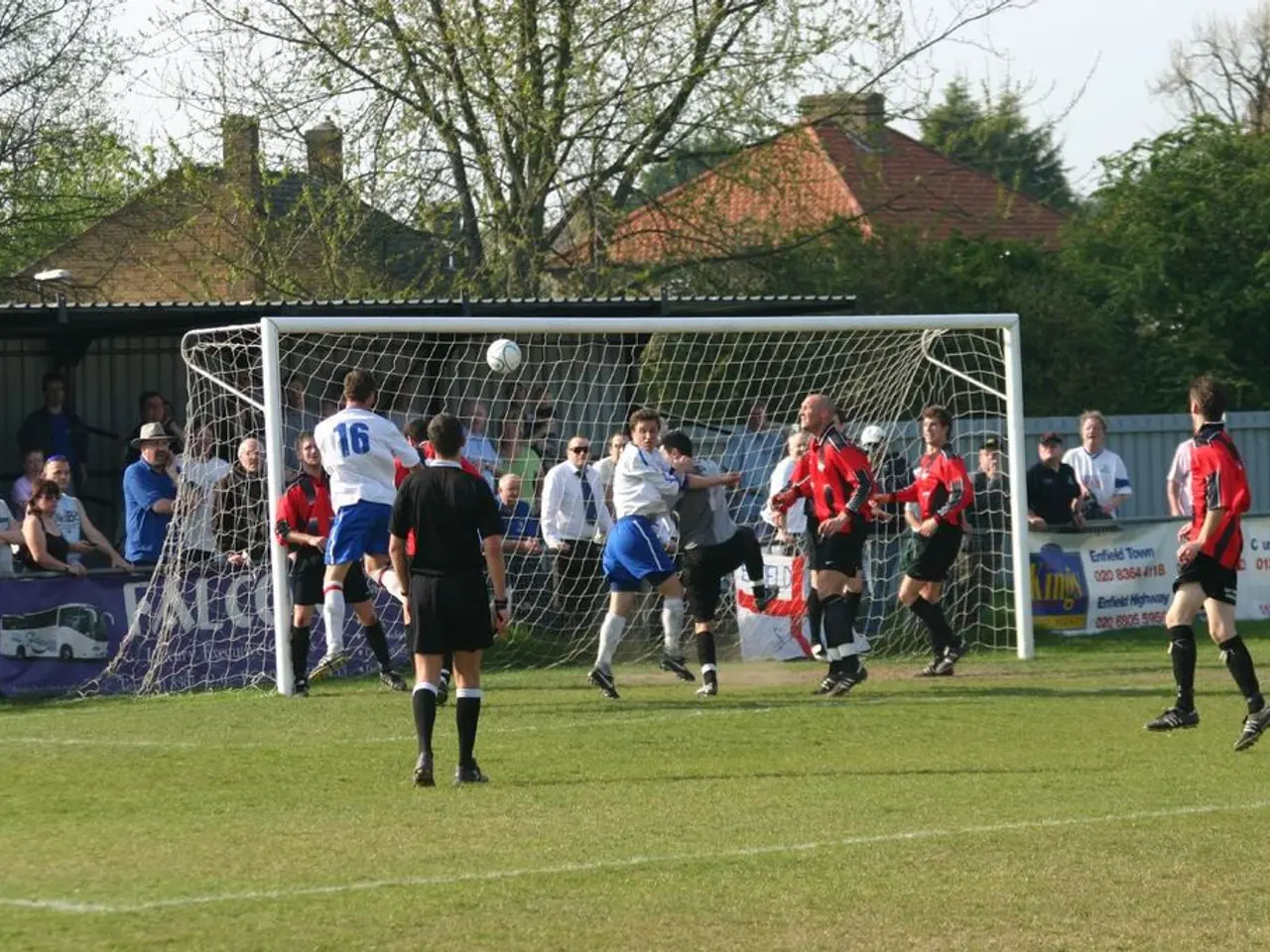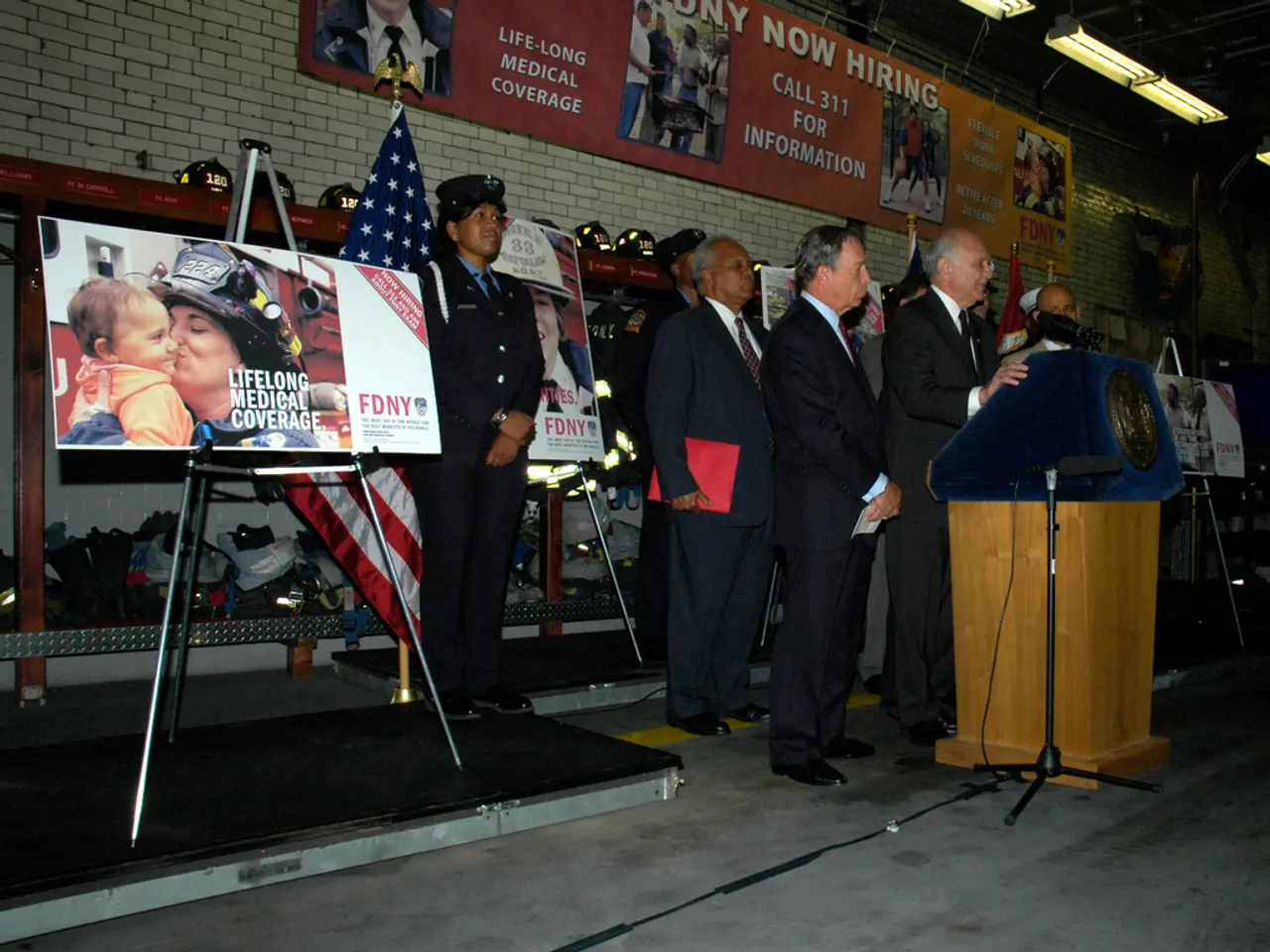Unraveling the Life of Jimmy Hoffa and the Puzzling Disappearance that Brought it to a Close
===================================================================================================================
Jimmy Hoffa, the charismatic and controversial president of the International Brotherhood of Teamsters union, vanished without a trace on July 30, 1975. His disappearance, which is widely believed to have been a Mafia-organised hit, remains one of the most intriguing unsolved mysteries in U.S. history.
Hoffa's life was marked by a series of events that shaped his reputation and ultimately led to his downfall. Born in 1913, he started his career with the Teamsters at a young age, participating in labour battles and protests against poor working conditions. His early years with the union saw a significant surge in membership numbers, propelling him to prominence within the organisation.
During his tenure as president, from 1957 to 1971, Hoffa's leadership was characterized by growth and innovation. However, his contentious wielding of power, cult-like popularity, and ties to the criminal underworld were also subjects of controversy.
Hoffa's national career took a turn for the worse after he was convicted of fraud and bribery. Despite being re-elected as president while in prison, he was in no position to carry out the day-to-day work of managing the union. His attempts to divest himself of landholdings raised red flags for prosecutors and jurors, leading to his denial of parole twice, despite his exemplary behavior in prison.
As Hoffa's legal troubles escalated, so did the threats from the Mafia. A resurgent Hoffa was seen as a potential threat to both organised crime interests and other union leaders, such as Frank Fitzsimmons. His pushback enraged the Mafia, who feared that a resurgent Hoffa might tip the balance of power among feuding families and potentially start a nationwide mob war.
On the fateful day of his disappearance, Hoffa went to a meeting with known mobsters Anthony Giacalone and Anthony Provenzano at the Machus Red Fox restaurant in a Detroit suburb. He was last seen in the restaurant parking lot, and his car was found there, but no trace of Hoffa himself was ever recovered.
The investigation involving the Michigan State Police was soon joined by the FBI. Russell Bufalino, the "Silent Don" who headed up the Philadelphia Mafia, tried to get a message to Hoffa to back off after his release from prison. However, the exact details of Hoffa's fate remain officially unresolved, as no physical evidence confirming his death or burial site has been located.
Rumours suggest that Hoffa's body was likely disposed of in a nearby cremation site, leaving little if anything behind that can be identified. Despite extensive investigations and searches over 50 years, Hoffa's body has never been found.
Hoffa's son, James P. Hoffa, heads up the union virtually synonymous with his father's name and has been at the helm longer than his namesake. Running a campaign for general president of the union on the explicit vow to rid the Teamsters of mob influence, James P. Hoffa told the membership, "The mob killed my father. If you vote for me, they will never come back."
The infamously unsolved 1975 disappearance of Jimmy Hoffa remains captivating to this day. Despite the passage of time, most authorities on the matter agree that Jimmy Hoffa was killed by the Mafia, but the details of his death, including who ordered the hit, who pulled the trigger, and what they did with his corpse, remain unknown.
References:
- The Disappearance of Jimmy Hoffa
- The Hoffa Wars
- The Shadow of Jimmy Hoffa
- The Mob and Jimmy Hoffa
- Through various biographies, one can delve deep into the life of Jimmy Hoffa, a pivotal figure in American-football-like politics within labor unions.
- The intriguing unsolved mystery of Jimmy Hoffa's disappearance in 1975 has sparked interest in general-news platforms and crime-and-justice segments.
- If one were to travel across the United States, they might find historical sites that recall the life and times of a man like Hoffa, who left a lasting impact on the history of labor unions.
- The events leading up to Jimmy Hoffa's vanishing, including his conviction for fraud and bribery, can be found in numerous biographies and political texts.
- Sports enthusiasts, particularly those who follow football or the NFL, might be surprised to learn about the parallels between the cutthroat world of professional sports and the life of this notorious union boss.
- Despite extensive searches, the whereabouts of Jimmy Hoffa's remains remain a mystery, much like the best-kept secrets of the Mafia, a subject that continues to fascinate audiences in travel, history, and crime-and-justice genres.








